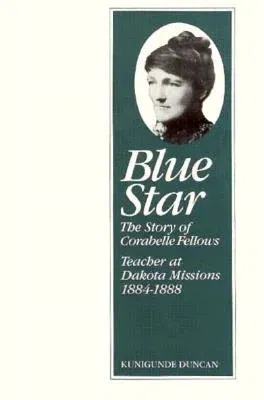Kunigunde Duncan
(Author)Blue Star: The Story of Corabelle Fellows, Teacher at Dakota Missions, 1884-1888Paperback, 15 February 1990

Qty
1
Turbo
Ships in 2 - 3 days
In Stock
Free Delivery
Cash on Delivery
15 Days
Free Returns
Secure Checkout

Part of Series
Borealis Books
Print Length
250 pages
Language
English
Publisher
Minnesota Historical Society Press
Date Published
15 Feb 1990
ISBN-10
0873512456
ISBN-13
9780873512459
Description
Product Details
Author:
Book Format:
Paperback
Country of Origin:
US
Date Published:
15 February 1990
Dimensions:
20.98 x
14.12 x
1.98 cm
ISBN-10:
0873512456
ISBN-13:
9780873512459
Language:
English
Location:
Saint Paul, MN
Pages:
250
Publisher:
Series:
Weight:
331.12 gm